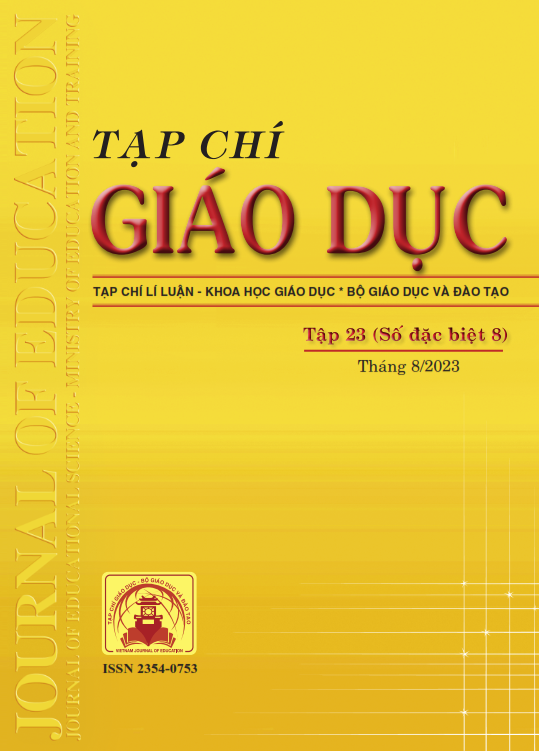Xây dựng và sử dụng thí nghiệm lượng nhỏ trong dạy học chủ đề “Nitrogen và Sulfur” (Hoá học 11) nhằm phát triển năng lực tìm hiểu thế giới tự nhiên dưới góc độ hoá học cho học sinh
Tóm tắt
Currently, the use of microscale experiments in teaching Chemistry is being of interest, research and development in many countries because of its compact size, flexible movement, and small size, saving chemicals and especially reducing the amount of chemicals released into the environment to a minimum... Compared to using traditional experiments, the use of microscale chemical experiments brings many benefits in contributing to the development of chemical competence, implementing green chemistry orientation and improving learning interest for students, and at the same time saving cost and time in conducting experiments. The article presents the theoretical basis, how to build and use microscale experiments in the topic “Nitrogen and Sulfur” in Grade 11 Chemistry in order to develop the research competence to understand the natural world from the perspective of Chemistry for students.
Tài liệu tham khảo
Abdullah, M., Mohamed, N., & Ismail, Z. H. (2007). The effect of microscale chemistry experimentation on students’ attitude and motivation towards chemistry practical work. Journal of Science and Mathematics Education in Southeast Asia, 30(2), 44-72.
Bộ GD-ĐT (2018a). Chương trình giáo dục phổ thông môn Hoá học (ban hành kèm theo Thông tư số 32/2018/TT-BGDĐT ngày 26/12/2018 của Bộ trưởng Bộ GD-ĐT).
Bộ GD-ĐT (2018b). Chương trình giáo dục phổ thông – Chương trình tổng thể (ban hành kèm theo Thông tư số 32/2018/TT-BGDĐT ngày 26/12/2018 của Bộ trưởng Bộ GD-ĐT).
Bradley, J. D. (2001). UNESCO/IUPAC-CTC Global Program in Microchemistry. Pure and Applied Chemistry, 73(7), 1215-1219.
Đinh Xuân Thảo, Nguyễn Thị Diệu Thuý, Trần Thị Trang, Đặng Thị Thuỳ My (2021). Thiết kế bài thực hành Hóa học đại cương cho sinh viên không chuyên Trường Đại học Tây Nguyên theo mô hình thí nghiệm hóa học lượng nhỏ. Tạp chí Khoa học, Trường Đại học Tây Nguyên, 15(51), 74-81.
Rayner-Canham, G. (1994). Microscale methods in general chemistry. Education in Chemistry, 31(3), 68-70.
Tesfamariam, G., Lykknes, A., & Kvittingen, L. (2014). Small-scale chemistry for a hands-on approach to chemistry practical work in secondary schools: Experiences from Ethiopia. African Journal of Chemical Education, 4(3), 48-94.
The Royal Society of Chemistry (1998). Microscale Chemistry: Experiments in Miniature (J. Skinner, Ed.). United Kingdom: Royal Society of Chemistry.
Đã Xuất bản
Cách trích dẫn
Số
Chuyên mục
Giấy phép

Tác phẩm này được cấp phép theo Ghi nhận tác giả của Creative Commons Giấy phép quốc tế 4.0 .












